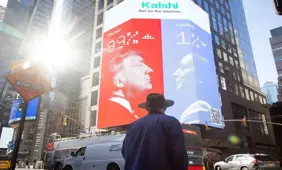Massachusetts Gaming Commission Maintains Taxation on Promotional Play Revenue

The Massachusetts Gaming Commission (MGC) has made it clear that licensed sports betting operators in the state will be subject to taxation on their promotional play revenue.
The MGC has confirmed that it will not consider promotional play as a deductible expense when calculating operators' tax liabilities. This move sets Massachusetts apart from some other states that have allowed promotional play deductions.
The decision by the MGC is based on several factors.
Firstly, Massachusetts aims to prevent an inundation of excessive sports betting offers that may be constantly pushed to consumers. By ensuring that promotional play revenue is taxable, the MGC seeks to maintain a balanced market environment.
Secondly, the commission believes that promotional play revenue should be treated as legitimate business activity and taxed accordingly.
The MGC arrived at this conclusion after examining data from other states and assessing the costs and benefits associated with promotional play and deductions.
The MGC voted unanimously, with a majority of 5-0, in favor of taxing promotional play revenue in Massachusetts. The commission emphasized that legislators originally intended for promotional play to be included as a taxable component of operators' revenue.
Taxing promotional play revenue provides clarity for operators and eliminates speculation. While it may limit the ability to promote more aggressively, operators now have a clear understanding of the tax implications and can allocate appropriate resources to bonus inducements and free play.
The decision by the MGC to tax promotional play revenue has not received significant negative feedback. In fact, it offers operators a defined framework within which they can operate and plan their promotional strategies. Furthermore, the MGC used the recent meeting to address other important matters.
During the meeting, the commission issued fines to MGM Springfield and DraftKings for regulatory violations. These penalties underscore the MGC's commitment to enforcing compliance and maintaining industry standards.
Additionally, the MGC granted operators an extension to implement advanced software solutions aimed at promoting safer gambling practices. The extension allows operators to adopt and fine-tune the technology necessary to protect consumers, detect potential problem gambling cases, and enhance overall player safety.
By granting this extension, the MGC acknowledges the importance of implementing robust responsible gambling measures. It also recognizes the need for operators to have adequate time to implement and ensure the effectiveness of these technologies.
MGC’s Role in a Fair and Transparent Market
Massachusetts Gaming Commission's decision to tax promotional play revenue reflects the regulator's dedication to a fair and transparent sports betting market in the state. The clarity provided to operators, coupled with the extension for implementing safer gambling technology, demonstrates the MGC's commitment to consumer protection and responsible gambling practices.
More Regulation News
RELATED TOPICS: Regulation









Review this New Post
Leave a Comment
User Comments
Comments for Massachusetts Gaming Commission Maintains Taxation on Promotional Play Revenue